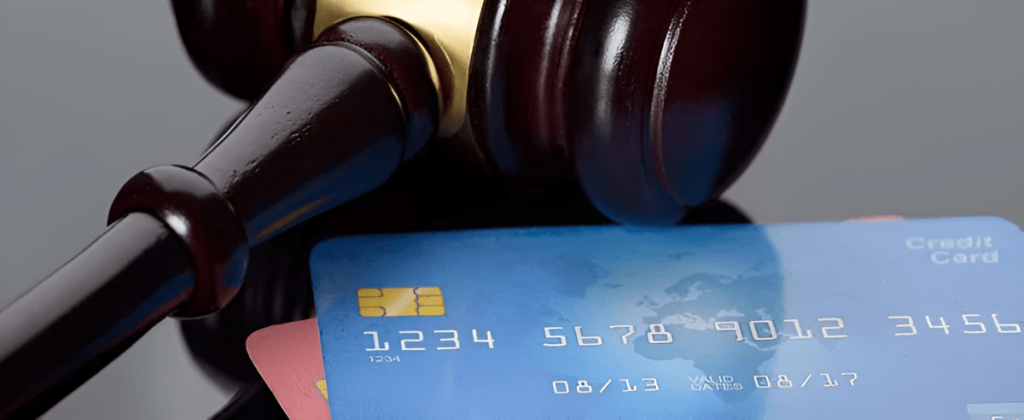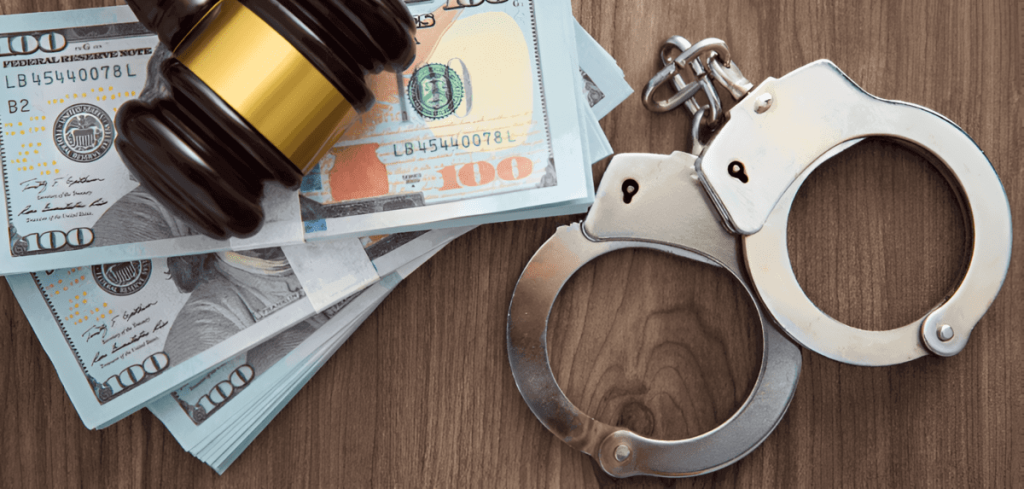Introduction
Chargebacks protect consumers from fraudulent transactions by allowing them to reverse charges on their credit or debit cards. However, misuse of this mechanism can lead to serious legal consequences, including potential jail time. This article will examine the legal risks associated with chargebacks, the conditions under which they might result in criminal charges, and practical steps for consumers and merchants to avoid these risks.
Understanding Chargebacks
What is a Chargeback?
A chargeback occurs when a cardholder disputes a charge, prompting the bank to reverse the transaction. This system protects consumers from fraud and billing errors. According to Visa and Mastercard, chargebacks are intended to be a last resort after other dispute resolution methods have failed.
Common Reasons for Chargebacks
- Fraudulent Transactions: When a consumer disputes unauthorized charges on their account.
- Goods Not Received: The customer never received the product or service.
- Defective Products: The product received does not match the description.
- Billing Errors: Incorrect or duplicate charges.
The Chargeback Process
- Initiation: The consumer contacts their bank to dispute the charge.
- Investigation: The bank assigns a reason code and investigates the dispute.
- Resolution: If valid, the funds are returned to the consumer, and the merchant loses the sale amount.
Legal Ramifications of Chargebacks
When Does a Chargeback Become Fraudulent?
Chargeback fraud occurs when a consumer disputes a legitimate transaction to get a refund while keeping the goods or services. Mastercard estimates that 60-80% of all chargebacks could be cases of friendly fraud.
Criminal Charges and Jail Time
Filing fraudulent chargebacks can lead to severe legal consequences. If proven that the consumer knowingly committed fraud, they may face criminal charges, including fines, restitution, or even jail time. The U.S. Federal Trade Commission (FTC) categorizes fraudulent chargebacks as theft, with penalties depending on the amount involved and the jurisdiction.
Case Study: Legal Consequences of Chargeback Fraud
In 2021, a consumer in California was sentenced to 12 months in jail for filing multiple fraudulent chargebacks, resulting in a $100,000 loss to merchants. This case illustrates the potential severity of chargeback fraud penalties.

Consequences for Consumers
Fines and Penalties
Consumers engaging in chargeback fraud may face significant fines. Banks may also impose additional penalties, such as closing the consumer’s account or adding them to a blacklist, affecting their ability to open new accounts.
Loss of Card Privileges
Credit card issuers like Visa and Mastercard have strict policies against chargeback abuse. Consumers guilty of chargeback fraud may lose their card privileges, complicating their ability to obtain credit.
Legal Action from Merchants
Merchants can sue consumers for damages resulting from fraudulent chargebacks. This can include compensation for lost revenue, legal fees, and damage to their reputation.
Merchant’s Perspective
Financial Impact on Merchants
Chargebacks are costly for merchants. Beyond losing the sale revenue, they also incur chargeback fees, which can range from $20 to $100 per transaction. High chargeback ratios can lead to increased processing fees or account termination.
Legal Options for Merchants
Merchants can pursue several legal avenues against chargeback fraud:
- Civil Lawsuits: Suing consumers for damages resulting from fraudulent chargebacks.
- Criminal Charges: In severe cases, merchants can work with law enforcement to pursue criminal charges.
Case Study: Merchant’s Response to Chargeback Fraud
In 2022, an online retailer successfully sued a customer for $15,000 after a series of fraudulent chargebacks. The court ruled in favor of the merchant due to clear evidence of fraud.

Preventing Chargeback Fraud
For Consumers
Consumers can avoid unintentional chargeback fraud by:
- Keeping Records: Maintain detailed records of all transactions, including receipts and communications.
- Resolving Disputes Directly: Attempt to resolve issues with the merchant before filing a chargeback.
- Understanding Terms: Be familiar with the merchant’s return and refund policies before purchasing.
For Merchants
Merchants can protect themselves from chargeback fraud by:
- Implementing Clear Policies: Clearly state return, refund, and dispute resolution policies on your website.
- Using Fraud Detection Tools: Employ tools and services to detect and prevent fraudulent transactions.
- Monitoring Chargeback Ratios: Keep track of your chargeback ratio and take corrective actions if it begins to rise.
Partnership Highlight: Merchanto.org
To help merchants reduce chargebacks and protect their businesses, partnering with a reputable chargeback prevention service is crucial. Merchanto.org, an official partner of Visa and Mastercard in the chargeback prevention sector, offers comprehensive solutions to help businesses manage and mitigate chargeback risks. Learn more about their services here.
Conclusion
Chargebacks are a critical tool for consumer protection, but their misuse can have serious legal consequences. Fraudulent chargebacks, whether intentional or accidental, can lead to penalties such as fines, account closures, and even jail time in extreme cases. Both consumers and merchants need to be aware of their responsibilities and the potential risks involved. By understanding the chargeback process and adhering to best practices, individuals and businesses can minimize the likelihood of disputes and avoid the severe repercussions associated with chargeback fraud. Proper management and a clear understanding of legal obligations are essential to maintaining fair and secure financial transactions.
Table 1: Common Reasons for Chargebacks
| Reason | Percentage of Chargebacks | Example Scenarios |
|---|---|---|
| Fraudulent Transactions | 48% | Unauthorized use of a stolen credit card. |
| Goods Not Received | 26% | Customer never received the purchased item. |
| Defective Products | 15% | Product significantly differs from the description. |
| Billing Errors | 11% | Incorrect amount charged, duplicate charges. |
Table 2: Chargeback Fees and Costs for Merchants
| Chargeback Item | Average Cost (USD) | Notes |
|---|---|---|
| Chargeback Fee | $20 – $100 | Fee imposed by the bank for processing the chargeback. |
| Lost Revenue | Varies | The amount of the disputed transaction. |
| Operational Costs | Varies | Additional costs such as restocking fees. |
| Marketing Costs | Varies | Potential loss of customer loyalty and future sales. |
Table 3: Legal Consequences of Chargeback Fraud
| Consequence | Description | Example |
|---|---|---|
| Fines | Monetary penalties imposed by the bank or court. | A customer fined $5,000 for fraudulent chargebacks. |
| Jail Time | Incarceration for severe fraud cases. | A consumer sentenced to 12 months for $100,000 in chargeback fraud. |
| Account Closure | Termination of credit card privileges. | A consumer’s account closed after multiple fraudulent chargebacks. |



